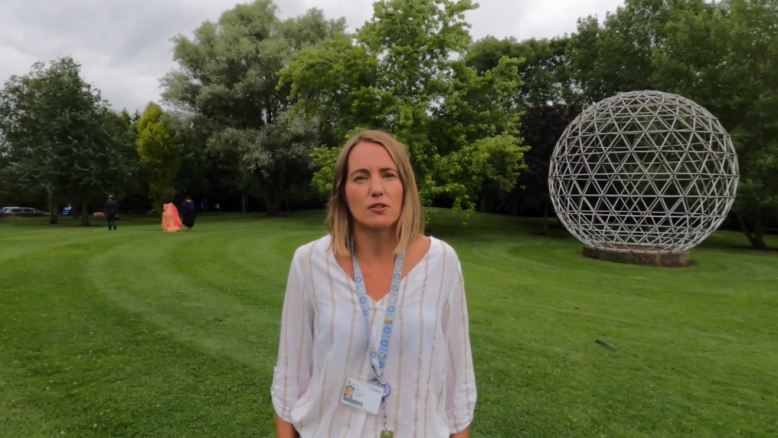
Mechanical engineering preparation

Welcome to the School of Mechanical Engineering Sciences. We are delighted you have decided to join us, and we look forward to meeting you in September.
This page contains some information about the course and modules, video links and background reading to help you prepare for the upcoming semester.
If you have any questions before you arrive, feel free to email the Associate Head of Education for Mechanical Engineering Sciences; Charlotte Foreman on c.foreman@surrey.ac.uk
What to expect
Hear from the Director of Learning and Teaching for the School, Charlotte Foreman, talking about what you can expect when you join us in September.
Recommendation computer specification
Many of the modules you will be studying throughout your degree will require the use of specialist Engineering software, for example in Year 1, you will studying Computer Aided Design and will be using Fusion 360. The system requirements for the software that will be used is:
- A processor with at least 4 cores
- Windows 11 or Windows 10 Operating System.
- 4 GB (or higher) graphics card (DRD has had good experience with the latest generation NVIDIA cards).
- 2 GHz CPU speed.
- 8 GB main memory (RAM)
The University has multiple computer suits that students can use, so if you don’t have your own PC, you can access the computers on campus to complete your work.
Course overview
We have three programmes within the School at undergraduate level:
- Aerospace Engineering
- Biomedical Engineering
- Mechanical Engineering
All of these degrees can be taken at either BEng or MEng level. We have designed your degrees with flexibility in mind. That means you may be able to change course once you are here, typically up to the end of the first year to switch between disciplines. However, a number of students begin taking a three-year BEng, but after recognising the value of a placement decide to move to either the 4-year BEng or the 5-year integrated Masters degree.
The academic year is split into two semesters October-February and February-June with coursework throughout the year and examinations at the end of each semester.
Year 1 overview
In the first academic year at Surrey, you will study eight modules – four per semester. The structure of the first year is as follows:
Year 1 (FHEQ Level 4) 2024/5
All modules are compulsory, and each is worth 15 credits.
Semester 1
ENG1103 - Mathematics for Engineers - S. Zelik
ENG1062 - Fluid Mechanics and Thermodynamics - G. Tian
ENG1063 - Materials and Statics - J. Whatts
ENG1064 - Design and Component Production - W. Xu
Semester 2
ENG1104 - Advanced Mathematics for Engineers - A. Kueh
ENG1066 - Solid Mechanics 1 - D. Birch
ENG1091 - Experimental and Professional Skills - J. Keddie
ENG1105 - Electronic Circuits and Devices - A. Hartavi
So that you can get an understanding of what and how you will study as a Mechanical Engineering Sciences student, the details of each module you will be studying in the first year can be seen in the links to the module catalogue for each module, which contain key information on the module including:
- Module overview and indicative module content
- Student workload and its breakdown
- Assessment pattern
- Modules aims and learning outcomes
- Teaching and learning methods
- Reading list
Semester 1 modules
- MATHEMATICS FOR ENGINEERS
- FLUID MECHANICS & THERMODYNAMICS 1
- MATERIALS & STATICS
- DESIGN & COMPONENT PRODUCTION
Semester 2 modules
Top tips
Re-familiarise yourself with notes from your A-level Mathematics studies (and physics if you took it). This will help to make sure you hit the ground running since it is easy to forget things after the long summer break.
It would be useful for you to look at the material supplied by the Library on general skills such as referencing and technical writing, as these will be invaluable to you throughout your degree and in future careers.
You will be asked to take a mathematics diagnosis test before you arrive. This will give you an idea of where you may have weaknesses. But don’t worry, whatever your mathematical ability every relevant topic will be covered in your first year.
It’s not all work! We have some wonderful student societies, MechSoc, Women in Engineering Society, and Formula student to name a few, which we hope you will join and get involved in their activities. Before you arrive, you can also explore the range of other societies that the university offers on the Surrey Students' Union website.
The School is very active across social media channels - follow us to keep up to date with what is going on, and interact with your opinions too! You can find us on: https://twitter.com/SurreyMES and Instagram